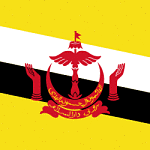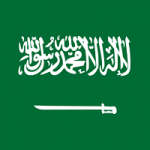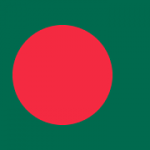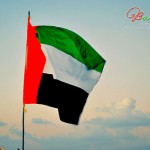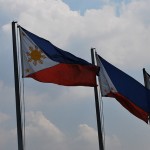Pakistan, if mainstream media would have it, is where armed conflict, political turmoil and collateral damage all go in one sentence. While there is a grain of truth in what is vividly portrayed on television, there is also the fact that Pakistan throbs with the cosmopolitan beats of Karachi. Once the seat of the untouchable Mughal Empire, Pakistan still hustles and bustles with the incessant sounds of ancient bazaars found at Quetta and captures the artistically inclined with the architectural grace of Lahore. Contrary to what many see splashed in headlines, Pakistan is an exotic tourist destination that is hardly ever touristed, given the constant stream of advice for non-essential travel to the country.
If you do find yourself in this land of the enchanting Karakoram Mountains, here is the list of Pakistan public holidays 2013. The majority of public holidays are influenced by the country’s Islamic faith, and the rest are national celebrations. January 1, the Gregorian New Year’s Day, is a bank holiday.
Eid Milad un-Nabi – Thursday, 24 January 2013
The Birth of Prophet Muhammad is one of the most important Islamic celebrations in the country, and it takes on a festive mood unlike other Milad or Mawlid celebrations in other Muslim-majority nations. Pakistan’s version of Milad is similar to the Western world’s celebration of Christmas, complete with dazzling lights, birthday cakes (sweets) and fireworks! Banners bearing the image of the Prophet, giant streamers and colorful buntings adorn mosques, government buildings and homes. Islamabad, which is notoriously known for always suffering from power outage, lights up brightly on the occasion of the Prophet’s birthday. During the day, massive processions are held in major cities like Karachi, Rawalpindi and Lahore, and almost the entire country is shuttered during this holiday.
Youm-e-Yekjehty-e-Kashmir – Tuesday, 5 February 2013
The Kashmir Solidarity Day commemorates the protests staged against the Indian occupation of the provinces of Jammu and Kashmir. To remember the Kashmir martyrs, students dressed in traditional embroidered garbs form human chains along the six entry points to Azad Jammu and Kashmir (Pakistani side) and join mass rallies to offer special prayers for the martyrs and for the Kashmiris continued efforts towards self-determination. Symposia, oratorical contests and walks-for-peace are held on this day to increase awareness of this ongoing issue.
Youm-e-Pakistan – Saturday, 23 March 2013
On this day in 1956, the 1940 Lahore Resolution, which demanded a separate self-determined Islamic state (which at the time was part of the British Indian empire) was adopted. Muhammad Ali Jinnah led the struggle for this independence. To celebrate Pakistan Day which marks the day when Pakistan became the first Islamic republic, a full military parade early in the morning led by the president is held in Islamabad, the country’s capital. National medals are then conferred to awardees, and a wreath-laying ceremony is conducted before the tombs of the Father of Pakistani Independence Muhammad Ali Jinnah and the poet Muhammad Iqbal.
Youm-e-Mazdoor – Wednesday, 1 May 2013
May Day is Pakistan’s version of Labor Day. On this day, the country honors the social and economic contributions of its working class to the advancement of the nation.
Eid ul-Fitr – Thursday to Saturday, 8 to 10 August, 2013
The End of Ramadan signals the end of the month of fasting, which is obligatory for every able-bodied Muslim who is not infirm, old, pregnant or menstruating. In Pakistan, the Lesser Eid or the Feast of the Breaking of the Fast is celebrated by waking up before sunrise and perform an ablution, wear new clothes, and attend a “salah”, a special prayer where the devout congregate in mosques and open spaces, after which they listen to a “khutbah” or sermon. Other rituals include supplicating called the “dua”; the “zakat” or the giving of donation to specific groups of people in need; and embracing a fellow worshiper after the special prayers are offered. Families take this time to visit their relatives and friends to share with them traditional meals. On the eve of “Chaand Raat” or the night before the Lesser Eid, bazaars often fill up for last minute shopping. Among young girls, colorful bangles and “Mehndi” or traditional painting on hands, are popular on this day. Sweets are customarily consumed and “Eidi” (cash rewards) are usually given to young children.
Youm-e-Azadi – Wednesday, 14 August 2013
On this day in 1947, Pakistani independence from the British protectorate was achieved. To celebrate this historic occasion, the president raises the Pakistani flag in a flag-hoisting ceremony in Islamabad. Cultural programs and tributes to national heroes are also performed in provincial capitals, completed by fireworks display. The white crescent moon and star on green Pakistani flag is displayed prominently on government buildings and houses, and the national emblems are even worn on clothing.
Eid ul-Azha – Tuesday to Wednesday, 15 to 16 October 2013
The Feast of Sacrifice is a major religious holiday in Pakistan as it is elsewhere in the Muslim world. Called the Greater Eid, families on the first day of Eid slaughter sheep or goat and distribute their meat to the poor, a commemoration of the willingness of Abraham to sacrifice his son Ishmael to Allah. Fasting is performed on this day, and prayer congregations are held in mosques and open parks all throughout Pakistan. This day is also a day of atonement, so Muslims forgive and seek forgiveness for their transgressions.
Youm-e-Iqbal – Saturday, 9 November 2013
The birthday of poet/philosopher Muhammad Iqbal is commemorated on this day. His poetry, photographs and personal effects are put on exhibitions on this day. Tributes are held for the “Poet of the East” in shrines dedicated to him, and people often visit his mausoleum in Lahore to pay homage.
Ashura – Thursday, 14 November 2013
This day commemorates the martyrdom of Imam Hussain and is celebrated by Shiite Muslims (followers of a branch of Islam which reveres the true caliph in the person of Imam Hussain) on the tenth day of Muharram, the first month of the Islamic calendar. As a sign of mourning, self-flagellations are often done on this day in the form of flogging and walking on live coal.
Youm-e-Viladat-e-Quaid-e-Azam – Wednesday, 25 December 2013
Muhammad Ali Jinnah was instrumental in the independence of Pakistan as a Muslim nation within the British protectorate. This day celebrates the 137th anniversary of his birth. Pakistanis pay homage to the founder of their country by putting up exhibits that recount his life and works and offering special prayers at his mausoleum in Karachi.
Explore the rest of the world
More from my site
Article by Chris
Chris had a passion to contribute to society especially to fellow travelers like himself. He also had a passion for Southeast Asia and frequently visited. While brainstorming ideas, he decided that a travel blog dedicated to his favorite countries, Thailand and Singapore, could be more beneficial than any guidebook. Only one year later did the blog’s success bring in more writers, more countries, and more readers.
- Google+ |
- More Posts (327)
Help others get the information they need by liking or sharing our page!
Follow @followloveblab
